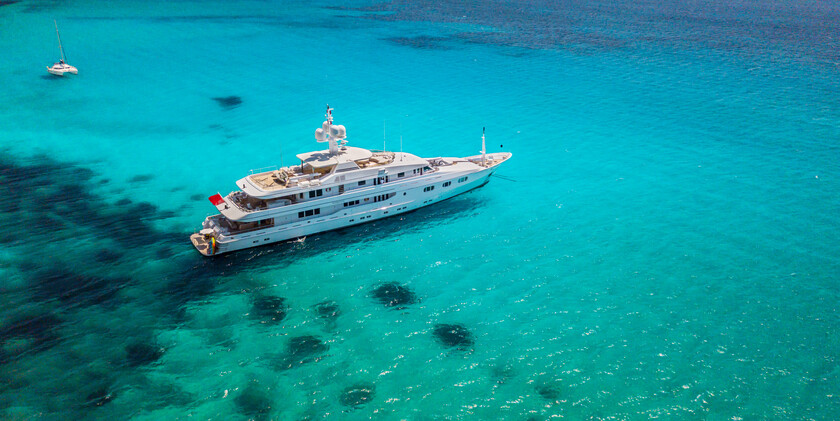Each month, we will be sharing a discussion piece written by a member of the maritime industry who can offer a unique or interesting perspective on an aspect of seafarers’ welfare. You can join the conversation on our social media channels – Facebook, LinkedIn and Twitter.
This month, Founder and CEO of ETYC (Environmental Training for Yacht Crew) Claire Ferandier Sicard discusses the relationship between crew mental health and environmental sustainability in the yachting industry.
Claire Ferandier Sicard, originally from Guadeloupe, transitioned from a psychology degree to a vibrant career in the yachting industry. With 8 years as a Chief Stewardess, she blended her passion for ocean conservation and business acumen to create ETYC in Monaco, delivering Environmental Training for Yacht Crew. She pursued further knowledge in ISO 14001 standard and in 'Business Sustainability Management' at Cambridge University in 2022. Claire is dedicated to fostering sustainability in luxury yachting.
Since the 2020 COVID-19 crisis, two key themes have emerged in the yachting industry that have now become central to discussions: crew mental health and environmental sustainability. How are these two themes interconnected? To what extent can one influence the other?
For us at ETYC, sustainability means addressing both the well-being of people and the planet. Having spent several years onboard various vessels, it's evident that the onboard atmosphere can vary significantly from one yacht to another. Often established by the captain, it's when selecting the crew, particularly department heads, that the tone is set. For experienced crew members, they may have the freedom to choose their vessels, prioritizing a positive atmosphere over higher pay. On such boats, opportunities for personal growth are typically more abundant.
During my last season onboard, I interviewed a 2nd stewardess during the recruitment process. She turned down a position on a larger, iconic yacht offering higher pay to work with me on a smaller vessel for a smaller salary because we got along so well from the start. She felt that the team was a better fit for her, choosing well-being over higher pay.
Caring for your crew enables them to grow onboard, assume responsibilities in various areas, and environmental initiatives are no exception. The drive to reduce environmental impact on board is often initiated by a crew member with a strong environmental conscience. This individual proposes changes to the captain and the rest of the crew, striving to persuade everyone to embrace these alterations. Some crew members will support and follow these proposals, while others may remain indifferent.
On yachts where fatigue, stress, and pressure surpass a certain threshold, there's no room for anything else. Crew members may begin to cut corners on environmental actions, such as waste sorting, waste reduction, and reduced chemical usage, as well as on their personal well-being, like eating less, taking fewer breaks, sleeping less, or hiding illnesses to avoid being singled out or losing their jobs.
In addition, the longevity of the crew, especially department heads, is a crucial factor. If crew well-being isn't prioritized, high turnover rates can lead to the abandonment of previously established environmental actions. Consistency on a yacht can be challenging to maintain, and it's nearly impossible to achieve sustainability when key positions are constantly changing.
That's why, during ETYC training, we address the United Nations Sustainable Development Goals (SDGs). We place a significant emphasis on onboard well-being, teamwork, communication, and mutual support. We develop a road map of collective actions that allow each crew member to implement changes within their department based on the knowledge acquired during their training. Effective communication is essential to the success of these projects. We also ask crew members to choose 3 SDGs out of the 17, for which they'll implement actions to enhance life onboard and the industry as a whole. Some focus on environmental goals like 'Life Below Water' or 'Responsible Production and Consumption', while others choose goals related to 'Gender Equality' or 'Education'. This illustrates the strong link between the well-being of people and the health of the planet.
In conclusion, the well-being onboard and environmental sustainability must also be championed and implemented within the broader yachting sphere. This includes yacht management companies, crew recruitment agencies, charter companies, and family offices. All of these entities have a role to play in ensuring the mental and physical stability of onboard crews, enabling long-term commitment to environmental initiatives.
Together, we can foster a holistic approach that values the well-being of the crew and the health of the Planet, ultimately benefiting both the People and the Planet.






